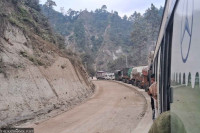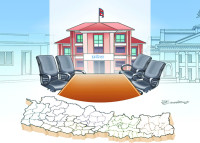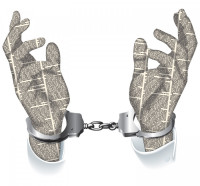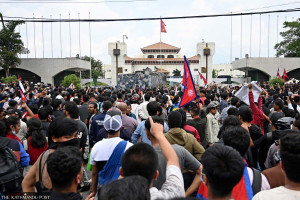Opinion
Perpetuating problems
The articles of the draft consititution must be consistent with the spirit of the preamble
Prakash Bom
The Constituent Assembly (CA) members have been overwhelmed since the day the preliminary draft of the constitution of Nepal was tabled in the CA. Most of the lawmakers opposed many provisions, which had long been resolved, but were reversed by the Constitution Drafting Committee. Once the public got hold of this ‘altered’ draft they were startled too because even from a layman perspective some of the articles of the draft constitution contradict the statements made in the preamble.
Contradictory claims
The preamble of the draft aspires for sustainable peace, good governance, development and prosperity by means of a federal democratic republic system of government. But without the delineation of the states, which has been referred to in the ‘structure of the state and distribution of the state power’ section Article 60, Clause 3, even as the number of states have been fixed, their borders—as per Clause 4—will be decided upon by two-third votes of a transformed legislature-parliament. Thus, it looks as though the constitution of the Federal Democratic Republic of Nepal will be promulgated without the demarcation of the provinces—eight states without physical location or names. No wonder, many people questioned the lawmakers on how is it evenpossible to declare Nepal a federal republic without demarcating the states, during the public hearings on the statute.
The actual process of physical demarcation of the state will further require a topographical survey by the federal commission which is yet to be formed. But promulgating a constitution without the blueprint of the states obviously contradicts the preamble and provokes public discontent.
Discriminatory provisions
Another example of the incongruity in the draft constitution is that the preamble mentions ending all forms of discrimination and suppression created by a feudal, tyrannical, centralised and unitary state mechanism. Yet, the citizenship provisions not only discriminates against citizens but also supresses their birthright to acquire the citizenship certificate. Article 12, declares that “no Nepali citizen shall be deprived of the right to acquiring the citizenship.” But it makes it mandatory for both the father and mother to be the citizens of Nepal for their child to acquire citizenship through descent.
This provision not only jeopardises the birthright of descendent Nepalis who only have a single parent but also disregards international practice by discriminating parenthood. So the entire Article 12 must be rectified with the provision ‘mother or father’ to comply with the preamble and international practice.
Similarly, in Article 13, the provision related to naturalised citizenship, seems to be based on the feudalistic practice of ‘Bahunbad’ as mentioned in Dor Bahadur Bista’s ‘Fatalism and Development’. It seems to be implying that Nepal welcomes daughter-in-laws but not son-in-laws. Article 13, Clause 1 mandates a foreign man who marries a Nepali citizen, 15 years of permanent residency as a condition to obtain naturalised citizenship, whereas a foreign woman married to a Nepali citizen does not need to wait for so long. The provision is not only patriarchal but also in contradiction to the statements made in the preamble.
Similarly, Article 13 further demands renunciation of foreign citizenship in order to acquire naturalised citizenship of Nepal. But, countries which have constitutional provision for dual-citizenship do not require giving up citizenship of the country of origin. For example, to become a naturalised citizenship of the US, one does not need to give up Nepali citizenship.
With regards to the statements about economic equality and social justice in terms of the parental property, the inheritance rights of the offspring have not been mentioned under right to property in Article 30. Further, the new constitution should also give parents the right to retain their property as long as they live from their offsprings, whether they be sons or daughters. The law must also protect the rights of both sons and daughters to inherit property after the death of both their parents whether they are married or single.
Need for amendment
A constitution is a document that establishes the fundamentals of the rule of law under democracy. So the self-contradictory elements in the statute must be amended to minimise legal hassles later in the future.
As the preamble of the constitution embraces Nepal’s multireligious and multilingual identity, it cannot contradict itself by favouring a certain religion or a language. So it ought to retain Nepal’s secular identity. Further, the aim of the constitution is to establish the rule of law by ensuring that all articles of the statute respect the preamble. Therefore, none the provisions can be in conflict with the preamble itself. The new constitution cannot be promulgated without rectifying the preliminary draft . The final document needs to include the boundaries of the eight states and should amend the citizenship provisions to end feudalistic discrimination and suppression of women’s rights.
Bom is a freelance writer at Global Politician, an independent journal of politics and world affairs




 5.44°C Kathmandu
5.44°C Kathmandu












